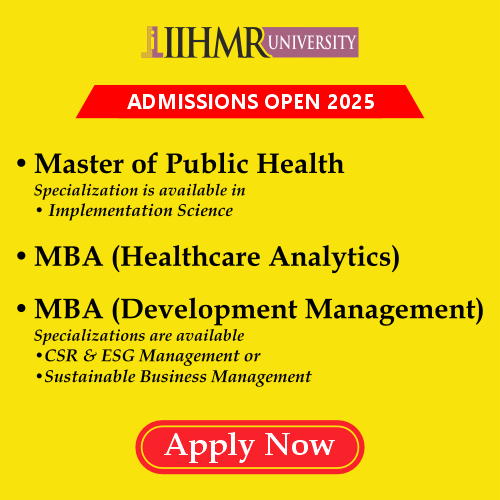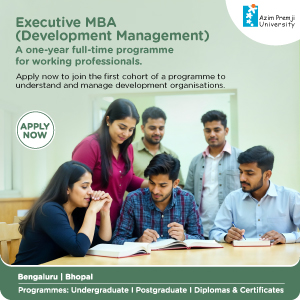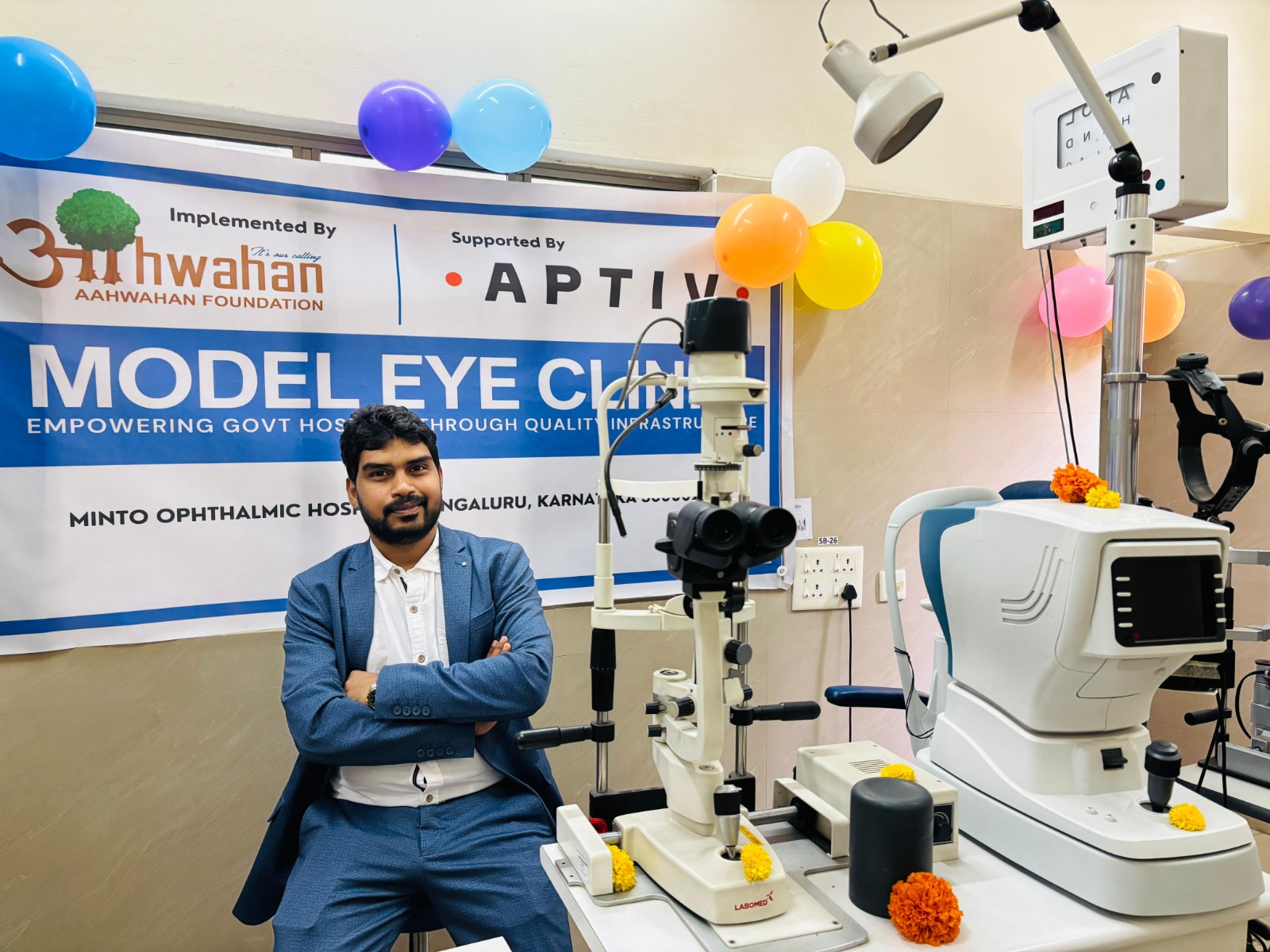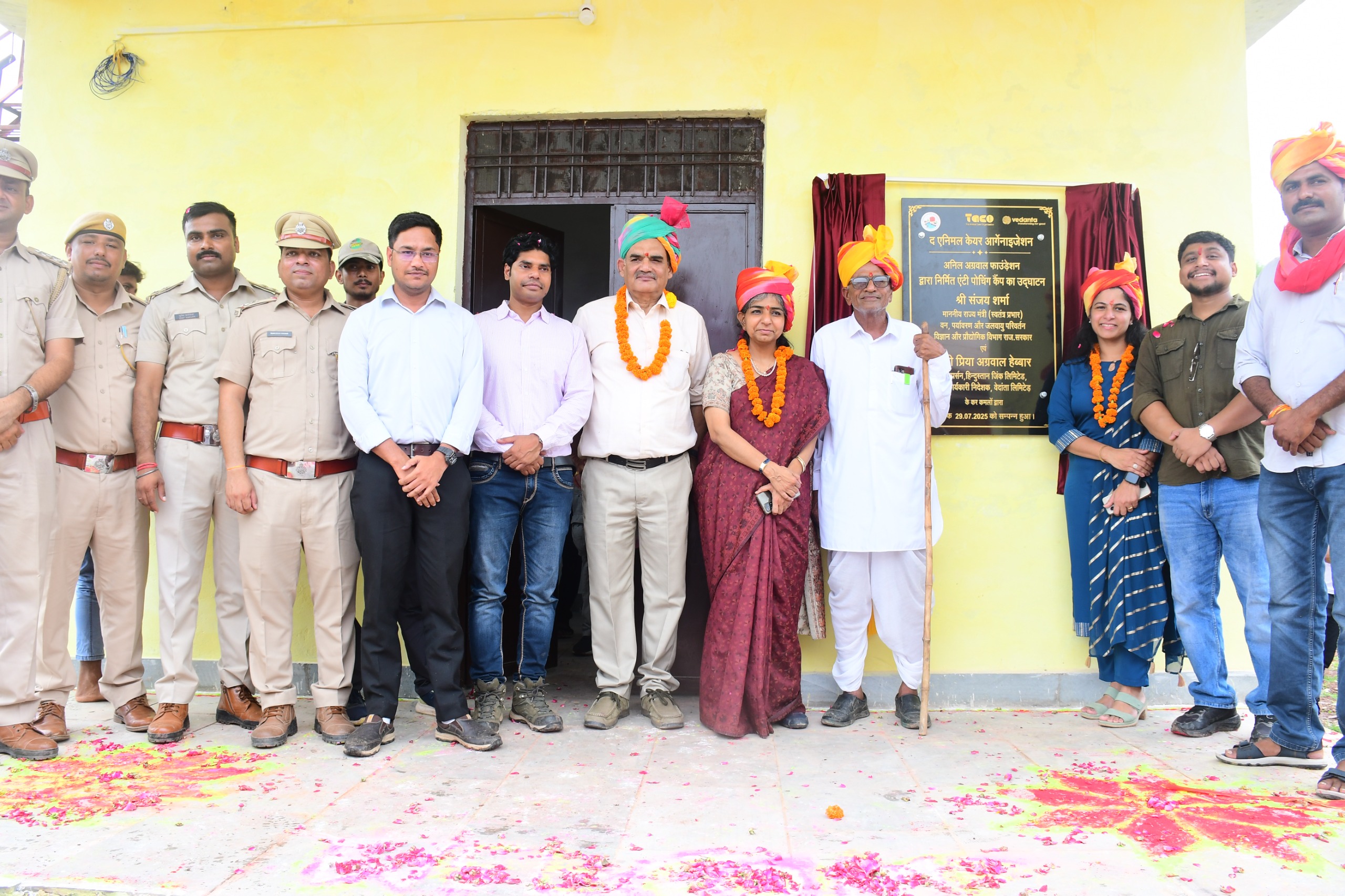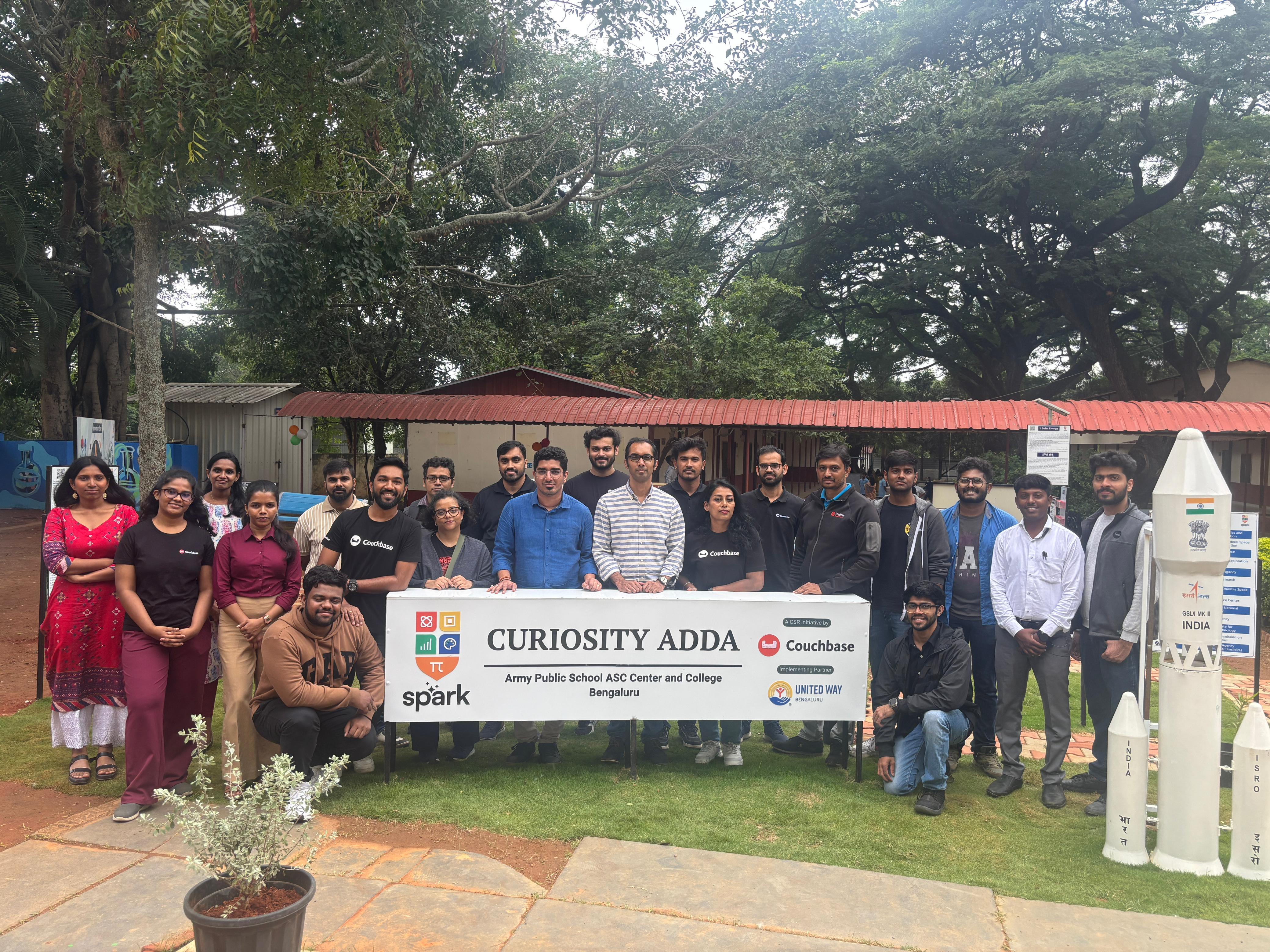Subscribe our Weekly Newsletter
RFP - Women Empowered for Climate resilience through Agricultural iNnovation (WE-CAN) in Madhya Pradesh

Organization: UN Women
Apply By: 07 Aug 2025
About the Organization
UN Women is the UN organization dedicated to gender equality and the empowerment of women. A global champion for women and girls, UN Women was established to accelerate progress on meeting their needs worldwide.
UN Women is the UN organization dedicated to gender equality and the empowerment of women. A global champion for women and girls, UN Women was established to accelerate progress on meeting their needs worldwide.
About the Proposal
UN Women, grounded in the vision of equality enshrined in the Charter of the United Nations, works for the elimination of discrimination against women and girls; the empowerment of women; and the achievement of equality between women, men and diverse genders as partners and beneficiaries of development, human rights, humanitarian action and peace and security.
All human development and human rights issues involve gender dimensions. UN Women globally focuses on key priority areas that are fundamental to women’s equality, and that can unlock progress across the board. UN Women’s priority areas include increasing women’s leadership and participation in political spaces, ending violence against women, enhancing women’s economic empowerment, engaging in all aspects of women peace and security processes, making gender equality central to national planning and budgeting through Gender Responsive Budgeting (GRB) and advancing gender in intergovernmental processes.
UN Women India Country Office is currently implementing Women Empowered for Climate resilience through Agricultural iNnovation (WE-CAN) project that aims to ensure equitable access and adoption of evidence-based climate smart innovations by women small-scale producers holder farmers resulting in improved crop productivity, income, and greater resilience to climate change.
Biofertilizers are a promising climate smart innovation that can reduce carbon emissions associated with synthetic fertilizer use and increase crop yields. Despite its benefits, adoption by small-scale producers is constrained due to lack of simple and user-friendly methods to measure and correctly apply biofertilizers. Simultaneously, India is witnessing a feminization of agriculture with women smallholder farmers taking on additional on and off-farm responsibilities. Despite their increasing roles in agriculture, women small-scale producers face gendered barriers in accessing new agricultural innovations. Moreover, they are rarely consulted during technology development stages resulting in women missing out on the benefits of innovative agricultural technologies. Through the development of a low-cost device for real-time quantification of biological nitrogen fixation coupled with engagement of women small-scale producers as innovators throughout the innovation development pathway, WE-CAN seeks to demonstrate a new model of Public-Private Partnership driven gender responsive agricultural innovation development from design to adoption. The project will be implemented in the state of Madhya Pradesh where UN Women has a state office.
In this context, UN Women seeks the services of a proponent civil society organisation to work closely in partnership with UN Women and our pre-determined partner to demonstrate gender-responsive agricultural innovation development and initial adoption of climate smart innovations by women smallholder farmers.
Specific workstream areas are outlined below:
- Closely engage over two agricultural seasons with 15 women farmers as lead farmers and their households.
- Work with 50 women smallholder farmers to pilot and test an on-farm biosensor for effective use of biofertilizers
It is expected that the proponent organisation will implement the programme in the state of Madhya Pradesh and undertake the activities listed in the description of services section below.
UN Women seeks the services of a civil society organization (CSO) to demonstrate gender-responsive agricultural innovation development and initial adoption of climate smart innovations by women smallholder farmers. Specific tasks are mentioned below:
Output 1: Closely engage with 15 women farmers as lead farmers and their households over two agricultural seasons (Year 1).
- Activity 1: Identify community and village in Madhya Pradesh where project can be piloted. Identify women farmers from male-headed and female-headed households who are engaged in agriculture as a primary livelihood.
- Activity 2: In partnership with UN Women technical experts, conduct a gender- technology assessment to identify barriers and enablers for women farmer’s adoption of climate resilient agricultural innovations with a focus on better inputs. Minimum number of respondents is 50.
- Activity 3: Identify 15 women farmers who can serve as lead farmers in the traditional lead-farmer model. This includes use of a small portion of land for experimentation.
- Activity 4: Conduct a baseline assessment of the 15 women farmers
- Activity 5: Engage with the 15 women lead farmers and their households over two agricultural seasons (Kharif and Rabi) utilizing field visits, training on agricultural practices utilizing biofertilizer, and monitoring experimental methodology in partnership with UN Women’s Private sector partner.
- Activity 6: Build capacity of women farmers to be innovators. This includes engaging women lead farmers to co-create questions, collect and record data to build ownership of the innovation process.
- Activity 7: Provide gender-sensitivity training to the women lead farmers and their households. Training topics will utilize participatory and adult-learning methodologies addressing key topics such as gender roles in decision-making in adoption of agricultural technology to ensure a do-no harm approach.
- Activity 8: Conduct assessments after Kharif and Rabi seasons to identify pain points, and enablers with women smallholder farmer’s adoption of biofertilizers and as lead-innovators
Output 2: Work with 50 women smallholder farmers to pilot and test an on-farm biosensor for effective use of biofertilizers (Year 2)
- Activity 1: Identify a women-led FPO. Identify 35 women farmers from male-headed and female-headed households who are engaged in agriculture as a primary livelihood.
- Activity 2: In partnership with UN Women technical experts, conduct a baseline for newly identified farmers to gauge intra-household decision making, agricultural technology adoption, etc.
- Activity 3: Work in partnership with UN Women’s private sector partner to scale adoption of biofertilizers with newly identified women farmers.
- Activity 4: Work in partnership with UN Women’s private sector partner to test the biosensor device developed for usability and effectiveness with identified women smallholder farmers.
- Activity 5: Conduct periodic consultations to ensure women farmer’s needs, preferences and challenges are considered and their feedback is inputted back into the device’s prototype design.
- Activity 6: Build capacity of women farmers to be community resource persons. This includes engaging women lead farmers to train and work with newly identified women smallholder farmers in the testing process.
- Activity 7: Provide gender-sensitivity training to all women farmers and their households engaged within the project utilizing participatory learning methodologies. Address key topics such as gender roles in decision-making in adoption of agricultural technology to ensure a do-no harm approach.
- Activity 8: In partnership with UN Women technical experts, conduct endline assessment to assess impact of the project on women farmer’s strengthened capacity to serve as innovators and women farmer’s adoption of new climate-smart technologies.
Additionally, the CSO partner will:
- Support UN Women team and private sector partner in field visits, baseline, endline and gender technology assessments
- Work closely with UN Women’s private sector partner by serving as key liaison with farmers.
- Document on-ground reality and evidence to develop knowledge products on innovative methods followed in engaging women smallholder farmers as innovators – including on best practices or what doesn’t work.
- UN Women follows a strict do-no harm policy. Therefore, every effort must be followed to ensure that training, experimentation and monitoring safely engage both the women and their households.
Eligibility
- The organization must have a minimum 3 years of experience in programme design and implementation
- The proponent organization must have experience in agricultural development sector with smallholder farmers,
- Have experience in engaging women smallholder farmers with gender-sensitive practices specifically with training and capacity building
- Have demonstrated experience helping scale technology adoption with smallholder farmers.
Qualifications and Competencies of Team Leader:
- The team manager must have minimum 4 years of experience working with the development and implementation of gender-sensitive agriculture development programmes.
- Minimum 5 years of experience in leading action research, hands-on experience on monitoring/evaluation of projects,
- Master’s or higher degree in social sciences, human rights, gender/women's studies, international development, or a related field is required
- Good command over English is a must.
Qualifications and Competencies of Team Members:
- Team members must have a minimum of 2 years’ experience in coordinating projects and/or capacity building in agriculture development, and working with women smallholder farmers
- Demonstrated experience in process documentation
- Master’s degree in social sciences, human rights, gender/women's studies, international development, or a related field is required.
- Good command over English is a must.
- Knowledge of Hindi and other local languages in Madhya Pradesh is a must
How to Apply
Closing Date: August 7, 2025
For more information please check the Link
Join us for the 12th Edition of India CSR & ESG Summit 2025 | Register Now
Latest Online Store
Latest Grants
Latest News
© Renalysis Consultants Pvt Ltd















